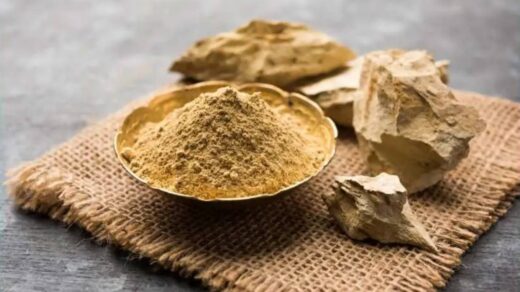Ayurvedic Herbs for Weight Loss in India You Need to Try
Reducing body fat can be a challenging journey, but integrating Ayurvedic herbs into your routine might offer a natural and effective approach. Ayurveda, an ancient system of medicine from India, emphasizes balance in the body and mind, promoting health through natural remedies and lifestyle changes. 
In this article, we will explore how Ayurvedic herbs can assist in reducing body fat, improve metabolism, and support overall wellness.
Before diving into Ayurvedic remedies, it’s crucial to understand what body fat is and why it accumulates. Body fat, or adipose tissue, comes in two types: subcutaneous (under the skin) and visceral (around organs).
Factors contributing to body fat include poor diet, lack of exercise, hormonal imbalances, and genetic predispositions. By addressing these factors with Ayurvedic herbs, we can work towards a healthier body composition.
Ayurvedic Approach to Body Fat Reduction
Ayurveda offers a comprehensive approach to body fat reduction by focusing on balancing doshas, enhancing digestion, and adopting lifestyle practices that align with individual needs. Here’s a deeper look at how Ayurveda addresses body fat reduction:
1. Balancing the Doshas
In Ayurveda, the three doshas—Vata, Pitta, and Kapha—are essential to understanding body constitution and health:
- Vata: Represents air and space elements. It governs movement and communication within the body. An imbalance in Vata can lead to irregular digestion and cravings for unhealthy foods, potentially affecting weight.
- Pitta: Represents fire and water elements. It controls metabolism and digestion. Excess Pitta can lead to excessive hunger or inflammation, impacting weight management.
- Kapha: Represents earth and water elements. It is associated with structure and stability. An imbalance in Kapha often results in sluggish metabolism, fluid retention, and weight gain.
Kapha Dosha and Weight Gain: Kapha imbalance is commonly linked to weight gain due to its qualities of heaviness, stability, and slow metabolism. To address this:
- Diet: Favor light, warm, and spicy foods that stimulate digestion and metabolism. Reduce intake of heavy, oily, and sweet foods.
- Exercise: Engage in vigorous activities to stimulate metabolism and balance Kapha’s tendency toward lethargy.
- Lifestyle: Avoid excessive sleep and lethargy. Maintain a regular daily routine to counteract Kapha’s sluggishness.
2. Strengthening Agni (Digestive Fire)
In Ayurveda, Agni (digestive fire) is crucial for proper digestion, metabolism, and overall health. A strong Agni ensures effective digestion and nutrient absorption, which can help in managing body fat.
Ways to Strengthen Agni:
- Diet: Eat warm, cooked meals that are easy to digest. Include spices such as ginger, black pepper, and cumin, which enhance Agni.
- Meal Timing: Have regular meal times and avoid overeating. Eating smaller, frequent meals can support consistent digestive fire.
- Hydration: Drink warm water or herbal teas that aid digestion. Avoid drinking large amounts of water during meals, which can dilute digestive juices.
3. Ayurvedic Herbs and Remedies
Ayurveda utilizes various herbs to support metabolism and aid in fat reduction:
- Triphala: Known for its detoxifying and digestive properties. It helps regulate bowel movements and supports overall digestive health.
- Guggul: Used for its ability to enhance metabolism and reduce fat accumulation.
- Garcinia Cambogia: Often used for its potential to control appetite and reduce fat.
4. Lifestyle and Behavioral Practices
Adopting Ayurvedic lifestyle practices can significantly aid in managing body fat:
- Mindful Eating: Eat in a calm environment and pay attention to hunger and fullness cues. Avoid distractions while eating to prevent overeating.
- Regular Exercise: Incorporate both aerobic exercises and strength training. Yoga and breathing exercises (Pranayama) can also support overall well-being and balance doshas.
- Adequate Sleep: Ensure sufficient, quality sleep as poor sleep can disrupt metabolism and lead to weight gain.
- Stress Management: Practice relaxation techniques, such as meditation or mindfulness, to manage stress, which can affect weight and metabolism.
By addressing imbalances in doshas, enhancing Agni, and incorporating Ayurvedic practices into daily life, you can create a holistic approach to body fat reduction that supports overall health and well-being.
Best Ayurvedic Herbs for Reducing Body Fat
Traditional Indian medicine with key Ayurvedic herbs designed to support body fat reduction. Explore these natural remedies that have been celebrated for centuries for their fat-burning and metabolism-boosting properties. Below are a few of them.
1. Guggul (Commiphora wightii)
Benefits: Guggul is well-regarded for its ability to support healthy metabolism and lipid levels. It contains compounds that help reduce fat accumulation and improve cholesterol profiles.
Usage:
- Forms: Available as capsules, tablets, or powder.
- Dosage: Follow the dosage instructions on the product label or consult with a healthcare provider for personalized recommendations.
- Preparation: If using the powder, mix with warm water or honey.
Note: Guggul may interact with certain medications, so it’s important to consult with a healthcare provider before starting.
2. Triphala
Benefits: Triphala combines the properties of Amalaki (Amla), Bibhitaki, and Haritaki. It supports digestive health, detoxifies the body, and promotes regular bowel movements, all of which contribute to effective weight management.
Usage:
- Forms: Available as powder, capsules, or tablets.
- Dosage: Typically, 1-2 teaspoons of Triphala powder mixed with warm water before bedtime. Start with a small dose to gauge your body’s response.
Note: Triphala has a mild laxative effect, so it’s best to start with a lower dose to avoid any digestive discomfort.
3. Ginger (Zingiber officinale)
Benefits: Ginger enhances digestion, boosts metabolism, and reduces bloating. It has thermogenic properties that can aid in fat burning.
Usage:
- Forms: Fresh ginger, ginger tea, ginger powder, or supplements.
- Preparation: Add freshly grated ginger to teas, and smoothies, or use it as a spice in cooking. Ginger tea can be made by steeping fresh ginger slices in hot water for 5-10 minutes.
Note: Ginger is generally safe but can cause heartburn or digestive issues in large amounts. Moderation is key.
4. Turmeric (Curcuma longa)
Benefits: Turmeric contains curcumin, which has anti-inflammatory and antioxidant properties. It supports liver function and can help reduce fat accumulation.
Usage:
- Forms: Powder, capsules, or fresh root.
- Preparation: Add turmeric powder to dishes, make turmeric tea (golden milk) by mixing with milk or a plant-based alternative, or take curcumin supplements.
Note: Turmeric is better absorbed when combined with black pepper, which enhances its bioavailability.
5. Cinnamon (Cinnamomum verum)
Benefits: Cinnamon helps stabilize blood sugar levels, improves insulin sensitivity, and has a role in managing cravings and appetite.
Usage:
- Forms: Ground cinnamon or cinnamon sticks.
- Preparation: Sprinkle on oatmeal, mix into smoothies, or use in baking. Cinnamon tea can be made by steeping a cinnamon stick in hot water.
Note: Ceylon cinnamon is preferred over Cassia cinnamon due to lower coumarin content, which can be harmful in large amounts.
6. Fenugreek (Trigonella foenum-graecum)
Benefits: Fenugreek seeds support metabolism, reduce appetite, and help balance blood sugar levels.
Usage:
- Forms: Seeds, powder, or supplements.
- Preparation: Fenugreek seeds can be soaked overnight and consumed in the morning, or the powder can be added to smoothies or meals.
Note: Fenugreek has a strong taste and may cause digestive issues in some people, so start with small amounts.
General Tips for Using Ayurvedic Herbs:
- Consultation: Always consult with a healthcare provider or an Ayurvedic practitioner before starting any new herbal regimen, especially if you have underlying health conditions or are on medication.
- Quality: Use high-quality, reputable sources for herbs to ensure potency and safety.
- Consistency: Ayurvedic remedies often require consistent use over time to see significant benefits.
Integrating these herbs with a balanced diet and lifestyle tailored to your dosha can support effective weight management and overall health.
How to Incorporate These Herbs into Your Diet
1. Herbal Teas
1. Ginger Tea:
- How to Make: Slice fresh ginger and steep it in boiling water for 5-10 minutes. You can add honey or lemon for extra flavor.
- Benefits: Supports digestion and boosts metabolism.
2. Turmeric Tea (Golden Milk):
- How to Make: Warm milk (dairy or plant-based) and whisk in turmeric powder, a pinch of black pepper, and a sweetener like honey or maple syrup.
- Benefits: Reduces inflammation and supports overall health.
3. Cinnamon Tea:
- How to Make: Boil a cinnamon stick in water for 10-15 minutes. Add a bit of honey or lemon if desired.
- Benefits: Helps regulate blood sugar and adds a comforting flavor.
2. Powdered Supplements
1. Guggul Powder:
- How to Use: Mix a small amount (as recommended by a healthcare provider) with warm water or add it to smoothies.
- Benefits: Supports metabolism and cholesterol levels.
2. Triphala Powder:
- How to Use: Mix 1-2 teaspoons with warm water before bedtime. You can also add it to a smoothie or juice.
- Benefits: Improves digestion and detoxifies the body.
3. Fenugreek Powder:
- How to Use: Add a teaspoon to your morning smoothie or mix it with water.
- Benefits: Enhances metabolism and controls appetite.
3. Cooked Dishes
1. Turmeric:
- How to Use: Add to curries, soups, rice, or grain dishes. Turmeric blends well with other spices like black pepper to enhance its absorption.
- Benefits: Supports liver health and reduces fat accumulation.
2. Ginger:
- How to Use: Grate and add to stir-fries, marinades, and sauces. Fresh ginger can also be used in baking or blended into smoothies.
- Benefits: Aids digestion and reduces bloating.
3. Cinnamon:
- How to Use: Sprinkle on oatmeal, yogurt, or fruit. It can also be used in baking or added to savory dishes like stews.
- Benefits: Helps regulate blood sugar and improves insulin sensitivity.
Additional Tips
1. Smoothies:
- Additions: Blend turmeric or ginger powder into your daily smoothies. A teaspoon of cinnamon can also enhance flavor and add health benefits.
- Benefits: Provides an easy way to incorporate multiple herbs into one meal.
2. Salads:
- Additions: Use grated ginger or a sprinkle of cinnamon in salad dressings or as a seasoning for roasted vegetables.
- Benefits: Adds flavor and supports digestion.
3. Seasonal Cooking:
- Additions: Use these herbs according to the season and your specific needs. For example, ginger and cinnamon are warming and can be especially comforting in cooler months, while turmeric can be used year-round.
4. Consistency:
- Integrate: Regularly using these herbs, even in small amounts, can help you reap their benefits over time.
Experiment with different ways to incorporate these herbs to find what works best for you and fits your taste preferences.
Ayurvedic Practices for Weight Management
In addition to using herbs, consider these Ayurvedic practices to support your weight loss journey:
1. Proper Hydration: Drinking plenty of water helps flush out toxins and supports metabolism. Aim for at least 8 glasses of water a day.
2. Balanced Diet: Follow a balanced diet that includes whole grains, fresh vegetables, fruits, and lean proteins. Avoid excessive sugar and processed foods.
3. Regular Exercise: Regular physical activity enhances metabolism and supports fat reduction. Incorporate activities like yoga, walking, or strength training into your routine.
4. Mindful Eating: Practice mindful eating by paying attention to hunger cues and eating slowly. This can help prevent overeating and improve digestion.
Precautions and Considerations
- Consult a Healthcare Provider: Always check with a healthcare professional before starting any new herb, especially if you have health conditions or are on medication.
- Check for Interactions: Ensure the herbs do not interact with your current medications.
- Monitor Side Effects: Be aware of possible side effects and discontinue use if adverse reactions occur.
- Follow Dosage Instructions: Adhere to recommended dosages to avoid complications.
- Ensure Quality: Use herbs from reputable sources to avoid contamination.
- Avoid Self-Medication: Seek professional guidance rather than self-medicating.
- Integrate with Lifestyle: Combine herbs with a healthy diet and exercise for best results.
- Watch for Allergies: Stop use if you experience any allergic reactions.
- Regular Monitoring: Check in with your healthcare provider regularly if using herbs long-term.
FAQs
Reducing body fat with Ayurvedic herbs offers a natural and holistic approach to weight management. Remember, consistency is key, and seeking guidance from a professional can help tailor these remedies to your specific needs.

























